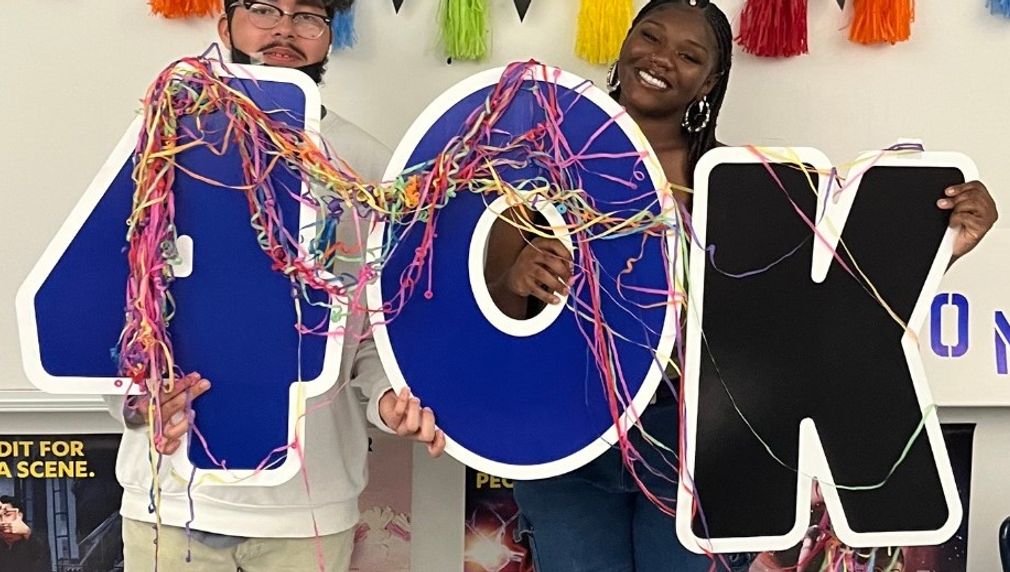Social-Emotional Learning for At-Risk Youth
As part of our broader effort to integrate a three-pronged Social-Emotional Development Strategy to build youth self-management, social awareness, and a growth mindset into all of our programs, we launched the pilot of Peaceful Connection, a youth violence prevention program in October 2022. It has been so successful that we want to expand Peaceful Connection to our fourth Club in Bell Gardens, and install a Calm Corner, a safe space where youth can learn tools to self-regulate.

What is the primary issue area that your application will impact?
Play Equity to Advance Mental Health (sponsored by the Los Angeles Dodgers Foundation)
In which areas of Los Angeles will you be directly working?
South LA
West LA
Other:: Bell Gardens/Cudahy
In what stage of innovation is this project, program, or initiative?
Expand existing project, program, or initiative
What is your understanding of the issue that you are seeking to address?
BGCMLA Clubs are in areas that have been heavily impacted by gun violence, that lack resources due to socio-economic disparities and disinvestment, and where many individuals are experiencing the effects of multi-generational poverty and exposure to trauma. Juvenile Justice system involvement is particularly catastrophic for the youth we serve. Data from the Los Angeles County Youth Justice Work Group states that a young person's chances of not graduating high school are doubled by a first-time arrest and quadrupled by a first-time court appearance and Black and Latino youth are more harshly punished than White youth at every stage of the LA County justice system. We want to expand the Peaceful Connection program to our Bell Gardens Club. A February 2021 report by the Education Access and Youth Development Measure J Subcommittee compiled a list of the 13 zip codes in Los Angeles most impacted by juvenile justice involvement, one of which is the Bell Gardens/Cudahy zip code of 90201.
Describe the project, program, or initiative this grant will support to address the issue.
The Peaceful Connection program and social-emotional learning initiatives like Calm Corners are a vital part of reducing youth violence and helping them avoid involvement with the juvenile justice system. BGCMLA launched Peaceful Connection in October 2022, and to date we have provided services to 113 students at 6 sites: Watts-Willowbrook, Challengers, and Venice Clubs and Jordan High School, Venice High School, and Phoenix Continuation High School. Peaceful Connection serves youth 10 to 18 who are referred to the six-month program, and assessed and assigned to a track, based on their number of risk factors. Youth with 2 to 3 risk factors are assigned to Track 1, where they participate in targeted Positive Youth Development Programming. Youth with 4 or more risk factors are assigned to Track 2, which consists of intensive case management utilizing smart goals. Each case manager has a caseload of 50 members. The requested funding would be used to expand this successful program to the Bell Gardens Club, so all BGCMLA members can have access to it. In addition, BGCMLA is establishing Calm Corners at each Clubhouse, which will be a space equipped with self-regulating toys and manipulatives, noise-reducing headphones, posters promoting emotional regulating techniques, art supplies, books, SEL technology and more, to provide members with evidence-based tools they can use to self-regulate in real time. Requested funding would be used to set up a Calm Corner at Bell Gardens Club.
Describe how Los Angeles County will be different if your work is successful.
During the grant period, we will expand the number of members served from 113 to 400, and we want to continue this program beyond its initial funding. Outside of the specific outcomes we intend to measure, we want to see youth who participate in Peaceful Connection graduate from high school, pursue additional education or vocational training, and avoid involvement with the juvenile justice system. Long-term, BGCMLA has a plan to expand from 8 to 18 sites in the next five years, and we would like to scale up Peaceful Connection so that it is offered at each site. We intend to stay in communication with the other Boys and Girls Clubs who are offering similar programs to further refine our program for maximum effectiveness. Broadly speaking, our Clubs aspire to promote social justice, equity, and unity within our communities, serving as vital resource centers and support systems for our community members.
What evidence do you have that this project, program, or initiative is or will be successful, and how will you define and measure success?
We have set the outcomes for Peaceful Connection participants that by the end of their participation in the program: - 90% of participants will create an individual action plan, utilizing SMART Goals to increase their academic success, build healthier habits, increase self-efficacy, and build stronger community connections. Case managers will document their progress toward those goals. - Youth will increase their non-violent conflict resolution skills by 40%, as measured by staff observation and surveys. We have set the following outcomes for all BGCMLA members: - 85% of youth will agree that "The adults at this Club care about me." - 90% of youth will agree that "The adults at this Club believe that I will be a success." - 80% will state that it is Extremely True or Sort of True that "People at this Club accept me for who I am." - 60% of Club members will be less likely to fight when provoked by a peer. - 70% of members will show increased conflict resolution skills.
Approximately how many people will be impacted by this project, program, or initiative?
Direct Impact: 800
Indirect Impact: 4,000